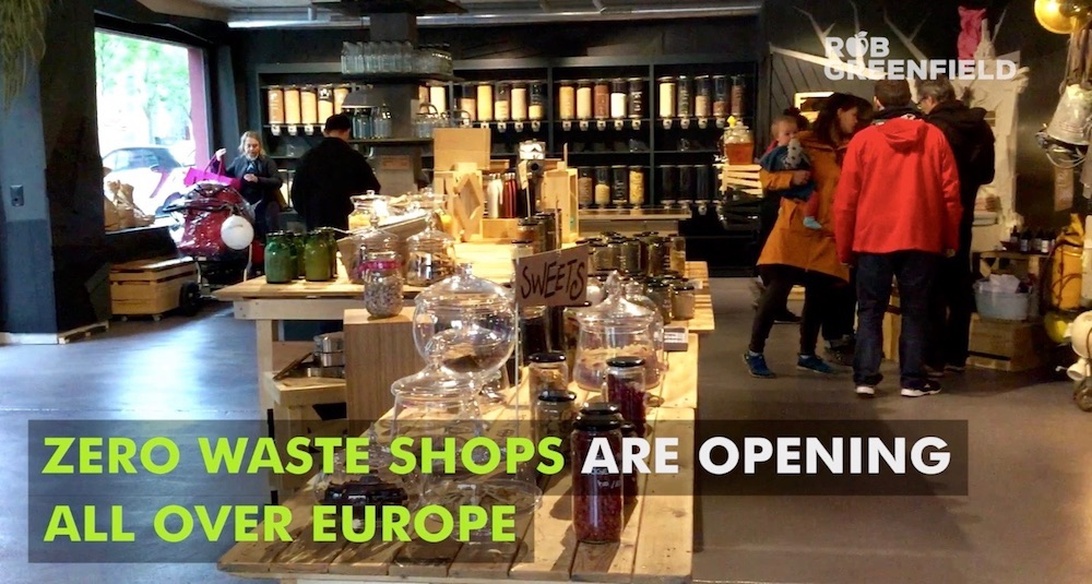
The Rise of Zero-Waste Restaurants: Sustainable Dining Practices
The clatter of plates, the murmur of conversation, the aroma of delicious food – these are the familiar comforts of dining out. Yet, behind the scenes, the hospitality industry has traditionally been a significant contributor to waste. Thankfully, a refreshing and vital movement is gathering pace: the rise of zero-waste restaurants. Driven by a potent mix of environmental urgency, evolving consumer expectations, and sheer culinary ingenuity, these establishments are challenging the ‘throwaway culture’ and proving that exceptional dining experiences can, and indeed must, go hand-in-hand with profound respect for our planet. This isn’t just about recycling a bit more; it’s a fundamental reimagining of how restaurants operate, from farm to fork and back again.
The imperative for change: Why zero waste matters now
The sheer scale of waste generated by traditional food systems is, frankly, staggering. Globally, it’s estimated that around one-third of all food produced for human consumption goes to waste annually, contributing significantly to greenhouse gas emissions – figures suggest somewhere between 8-10%, according to the UN Environment Programme. Add to this the mountains of packaging, particularly single-use plastics (Americans alone generate a reported 1.5 billion pounds of disposable food containers each year), and it’s clear that conventional waste management systems like recycling and composting, while helpful, are struggling to cope. This environmental reality check is coupled with a powerful shift in consumer attitudes. Diners, particularly younger generations like Millennials and Gen Z, are increasingly voting with their wallets, actively seeking out businesses that demonstrate genuine environmental responsibility. A substantial majority consider environmental programs crucial and, crucially, are willing to spend more on sustainable products and services, including eco-friendly packaging for their takeaways. This isn’t just altruism; it’s becoming a competitive necessity for restaurants wanting to connect with modern diners.
Beyond pleasing punters and the planet, embracing zero-waste principles offers tangible benefits for the restaurants themselves. It fosters a stronger connection with the local community – sourcing ingredients nearby, donating surplus food responsibly (often facilitated by legislation like the Bill Emerson Good Samaritan Food Donation Act in the US), and engaging in transparent waste reduction builds trust and local pride. This sense of purpose often permeates the team, boosting staff morale and retention. After all, who wouldn’t feel better working for an establishment genuinely committed to making a positive difference? This improved morale can translate directly into better customer service and a more loyal following, creating a virtuous cycle where sustainability underpins business success.
The nuts and bolts: Core practices of sustainable dining
Achieving near-zero waste requires a multi-faceted approach, touching every aspect of a restaurant’s operation. It starts, naturally, with the ingredients. Prioritising seasonal and locally sourced produce is paramount. This minimises ‘food miles’ and associated transport emissions, supports local farmers and economies, and ensures peak freshness and flavour. Trailblazers like Nobelhart & Schmutzig in Berlin exemplify this with their ‘vocally local’ mission, sourcing everything within a 250km radius. Others, like Restaurant Nolla in Helsinki, build direct partnerships with producers, ensuring ingredients arrive fresh and often with minimal packaging. Menus are designed around what’s available, fostering creativity and reducing reliance on energy-intensive, out-of-season imports. Increasingly, the focus is shifting towards regenerative farming practices, which actively restore soil health and biodiversity, representing a deeper commitment to ecological well-being.
Minimising waste in the kitchen and beyond
Inside the kitchen, a ‘root-to-leaf’ or ‘nose-to-tail’ philosophy becomes central. This means creatively utilising every part of an ingredient, transforming vegetable scraps into stocks, bones into broths, and finding ingenious uses for peels and offcuts. It’s about respect for the ingredient and maximising its potential. Some establishments, like London’s Nine Lives bar, even reuse fruit across cocktails, food, and cleaning products. Fermentation is another powerful tool, turning potential waste like vegetable trimmings or cheese rinds into complex flavour bases, pickles, or sauces, as seen in Silo’s ‘fermentatrium’ or the practices highlighted by The Sustainable Restaurant Association. Careful inventory management, perhaps aided by technology as used by Ekte in London, and offering appropriate portion sizes also play crucial roles in preventing waste before it occurs. Shorter, more focused menus, like those championed by Silo, can also significantly reduce potential spoilage.
Tackling packaging and managing residuals
Dealing with unavoidable waste requires robust systems. On-site composting is a hallmark of many zero-waste pioneers, turning food scraps into valuable soil conditioner, often returned to the farms that supply the restaurant, creating a closed loop. Silo in London and Frea in Berlin both feature prominent composting systems. Eliminating single-use plastics is another critical step. Spring in London was famously the first restaurant in the city to adopt a noplastic policy. This involves switching to reusable or genuinely compostable alternatives for everything from takeaway containers (like the pilot program at Just Salad) to straws and cutlery. Encouraging customers to bring their own containers for takeaways is also gaining traction. Collaboration with suppliers is key, pushing for deliveries in reusable crates, pails, and urns, echoing pre-industrial, circular models, as practiced by Silo and Nolla.
Sustainable operations and design
A true commitment extends beyond food waste. Energy and water efficiency are integral, incorporating LED lighting, energy-saving appliances, and water-conservation measures like low-flow taps. The very design and decor of the restaurant often reflect the zero-waste ethos. We see furniture crafted from reclaimed wood, plates made from recycled plastic bags (Silo), lampshades grown from mycelium (Frea), and surfaces made from reconstituted food packaging. This upcycling approach minimises the demand for new resources and creates unique, characterful spaces. Finally, none of this is possible without a well-informed and engaged team. Staff training on sustainable practices, from waste sorting to resource conservation, is essential for success.
Leading the charge: Pioneers of the zero-waste plate
Across the globe, inspiring restaurants are demonstrating that zero-waste dining is not just an ideal but a practical reality. Silo, first in Brighton and now London, famously declared itself a ‘restaurant without a bin’. Founded by Douglas McMaster, it embodies radical sustainability, milling its own flour, churning butter, composting everything on-site, and furnishing the space with upcycled materials. McMaster champions a philosophy driven by passion and care, arguing this is as vital as any technical fix. In Berlin, Frea stands out as the world’s first vegan zero-waste restaurant. They produce almost everything in-house, source locally and organically without packaging, and feature ‘Gersi’, their on-site composter, returning compost to partner farms. Their commitment extends to mycelium lampshades and reclaimed furniture.
Helsinki’s Restaurant Nolla, the Nordic region’s first zero-waste establishment, has earned a Michelin Green Star for its efforts. They work directly with local producers, compost on-site, return compost to suppliers, and have collaborated with partners to develop reusable delivery containers for fish and coffee. Their success demonstrates the viability of the model and inspires others. Other notable examples abound: Spring in London (no plastic), The Spread Eagle (London’s first 100% vegan pub aiming for minimal waste), Intero in Austin (farm-to-table Italian maximising ingredient use), SCEN Studio in NYC (certified zero-waste vegan), and Rhodora Wine Bar (NYC, focusing on recyclables/compostables). Recognition like the Michelin Green Star, awarded to restaurants like Nolla, Silo, Rest. in Oslo (using ‘imperfect’ ingredients), Hypha in Chester, Chez Panisse in Berkeley, and Inver in Scotland, highlights the growing importance and recognition of these sustainable leaders.
Beyond the bin: Charting a course for sustainable hospitality
The rise of zero-waste restaurants signifies more than just a passing trend; it represents a fundamental and necessary evolution in the hospitality industry. It’s an acknowledgement that the way we produce, consume, and dispose of food needs a radical overhaul. These pioneering establishments are proving that environmental responsibility doesn’t require sacrificing culinary excellence or financial viability. In fact, reducing waste can lead to cost savings, while a strong sustainability ethos resonates deeply with an increasingly conscious public, offering a distinct competitive advantage. The collaborative spirit seen in initiatives like Nobelhart & Schmutzig’s Gemeinschafts Symposium, connecting farmers and restaurants, points towards the importance of building stronger, more resilient local food systems.
For restaurateurs, the journey towards zero waste might seem daunting, but it often starts with small, incremental steps: conducting a waste audit, optimising ordering, improving composting, or engaging staff. For diners, choosing to support these establishments sends a powerful message. It’s about embracing a dining culture that values not just flavour and presentation, but also provenance, resourcefulness, and the long-term health of our planet. The pub, historically the heart of the community, and the restaurant, a place of celebration and connection, are evolving. By embracing zero-waste principles, they are not only preserving their relevance but are actively shaping a more sustainable, responsible, and ultimately, more delicious future for us all. It’s about time we raised a glass – perhaps in a recycled jam jar – to that.



